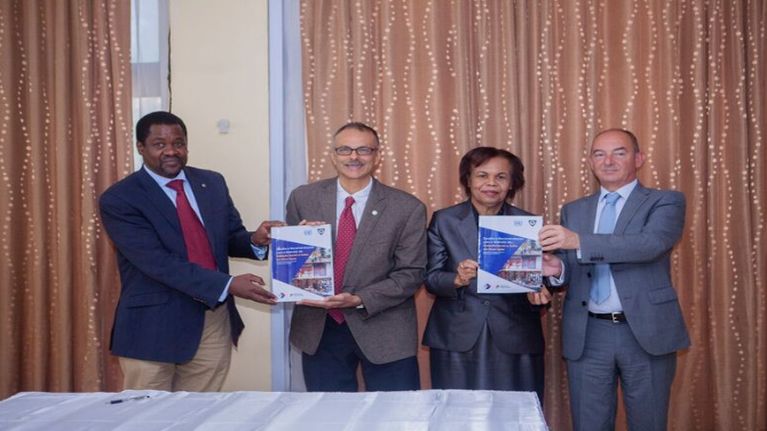The launch of the national social protection report
Timor-Leste identifies challenges and ways to advance its social protection for all
Timor-Leste shows it is possible to offer substantial protection to citizens even in developing countries, but much can be done to improve coverage and effectiveness.

The report, “Challenges and Ways Forward to Extend Social Protection for All in Timor-Leste”, reveals that Timor-Leste not only recognizes the right to social protection in its National Constitution, but also has systematically made significant public investments in social protection, amounting to about 15 per cent of the State budget of 2017. A tangible effect is that poverty fell from 51 per cent (2007) to 42 per cent (2014) of the population, among improvements in many other development indicators.
The investments in social protection often do not translate to adequate levels of protection. This is due to inequitable distribution of resources across the programmes, with some receiving a disproportionate share of budget."
Nuno Cunha, ILO’s Social Protection specialist
The report also highlights that most of the main social protection policies were created after the 2006/2007 crisis, focusing in the promotion of peace and social cohesion. Most programmes were designed in isolation, without an overarching policy framework to guide the development of the social protection system.
To advance the social protection system as a whole, the Ministry of Social Solidarity, with support from the UN, started in 2016 a process to develop the National Social Protection Strategy, using a participatory methodology that included several government institutions, representatives from workers’ and employers’ organizations, civil society institutions and UN agencies in a comprehensive assessment exercise.
The report launched is one of the results of this process. It analyses 26 programmes from six different ministries, presents the policy gaps and implementation issues of existing programmes, and offer recommendations on how to advance towards a modern, effective and efficient social protection system.
The challenge is to offer more, using less resources."
Roy Trivedy, UN Resident Coordinator for Timor-Leste
In addition to young children, the report also highlights the vulnerability of young and informal sector workers. They are also mostly unprotected, despite representing a large share of the population. Protection for these groups are among the lowest levels offered in the country, result of limited investments and policy gaps.
“The challenge is to offer more, using less resources,” says Roy Trivedy, UN Resident Coordinator for Timor-Leste, referring that the report calls for more investments on institutional capacity, particularly to improve management, execution, monitoring and evaluation of programmes.
Improving the balance of the distribution of budgets is also proposed, gradually transferring resources from over-generous programmes into policies focused at the most vulnerable groups. These are seem as key factors to increase the impact and efficiency of social protection in the coming decade.
The report was prepared with the technical assistance from the International Labour Organization’s (ILO) ACTION Portugal project with support from the Portuguese Government. The ILO is the UN agency devoted to advancing opportunities for women and men to obtain decent and productive work in conditions of freedom, equity, security and human dignity.
The full report can be accessed at the ILO website or www.mss.gov.tl.
For further information, please contact: André F. Bongestabs| ILO’s Social Protection Officer| bongestabsa@iloguest.org